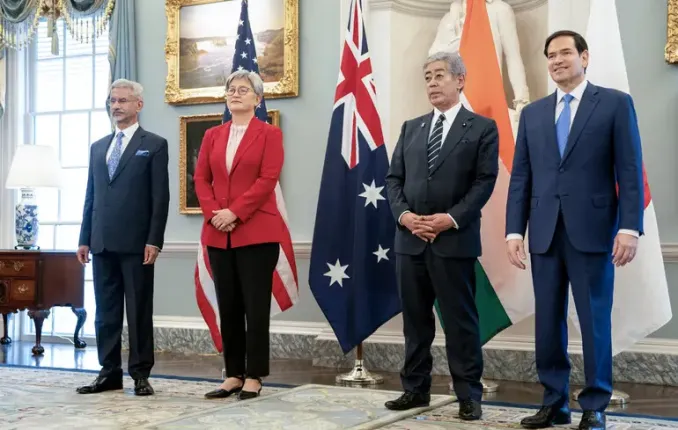U.S., Japan, India, and Australia Collaborate to Reduce Dependency on China for Critical Mineral Supplies

In today’s interconnected world, technological advancement and energy security are critical components of national safety and economic prosperity. As a response to the increasing dominance of China in resource control, the United States, Japan, India, and Australia have reached an agreement to work together in reducing dependency on China for the supply of strategic minerals. This initiative emerges amid growing concerns over Beijing’s leverage over essential resources needed for battery production, electric vehicles, high-tech equipment, and defense industries. A joint statement signed by representatives from the four countries emphasizes the importance of diversifying supply chains and mitigating risks associated with over-reliance on a single nation. Specific details of the new initiative remain undisclosed, but the overarching goal is clear — to establish a more resilient and alternative system for securing necessary resources, protecting economies from external pressure and manipulation. China holds significant reserves of various critical minerals, including the majority of global graphite supplies, a vital component in electric vehicle batteries. This has raised alarms among international circles, as supply restrictions from Beijing could seriously impact the global market and technological progress. U.S. Secretary of State Marco Rubio, who recently visited Washington, highlighted the importance of diversifying supply chains, stating: “Dependence on any one country for critical minerals and derived products poses a threat to our economic stability and technological development.” The foreign ministers of the QUAD nations also expressed concern about destabilizing actions and provocations from China in the South and East China Seas, stressing regional stability and freedom of movement. The members aim to avoid direct confrontations regarding China but focus instead on establishing mechanisms to safeguard their collective interests. Notably, India and Japan emphasized their desire for an “independent and open Indo-Pacific region,” hinting at China’s expanding influence in Asia. Discussions also touched upon reducing Beijing’s regional leverage, particularly concerning security and stability issues. While the four countries largely align on the China challenge, they diverge on other sensitive topics; notably, the joint statement does not mention Ukraine or Iran. India maintains close relations with Russia despite Moscow’s invasion of Ukraine, and both India and Japan have longstanding ties with Iran. The meeting with QUAD foreign ministers on January 21, shortly after President Trump’s inauguration, signaled a shift in U.S. strategy toward engaging like-minded nations to counterbalance China’s power. Interestingly, Beijing did not feature prominently in the initial agenda-setting, despite expectations of a renewed focus on regional security. President Trump is also expected to attend the upcoming QUAD summit in India later this year, emphasizing the strategic importance of these partnerships in confronting regional and global challenges.

